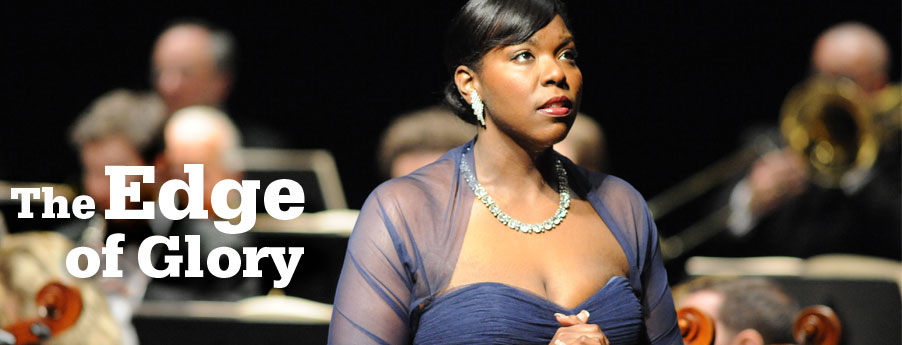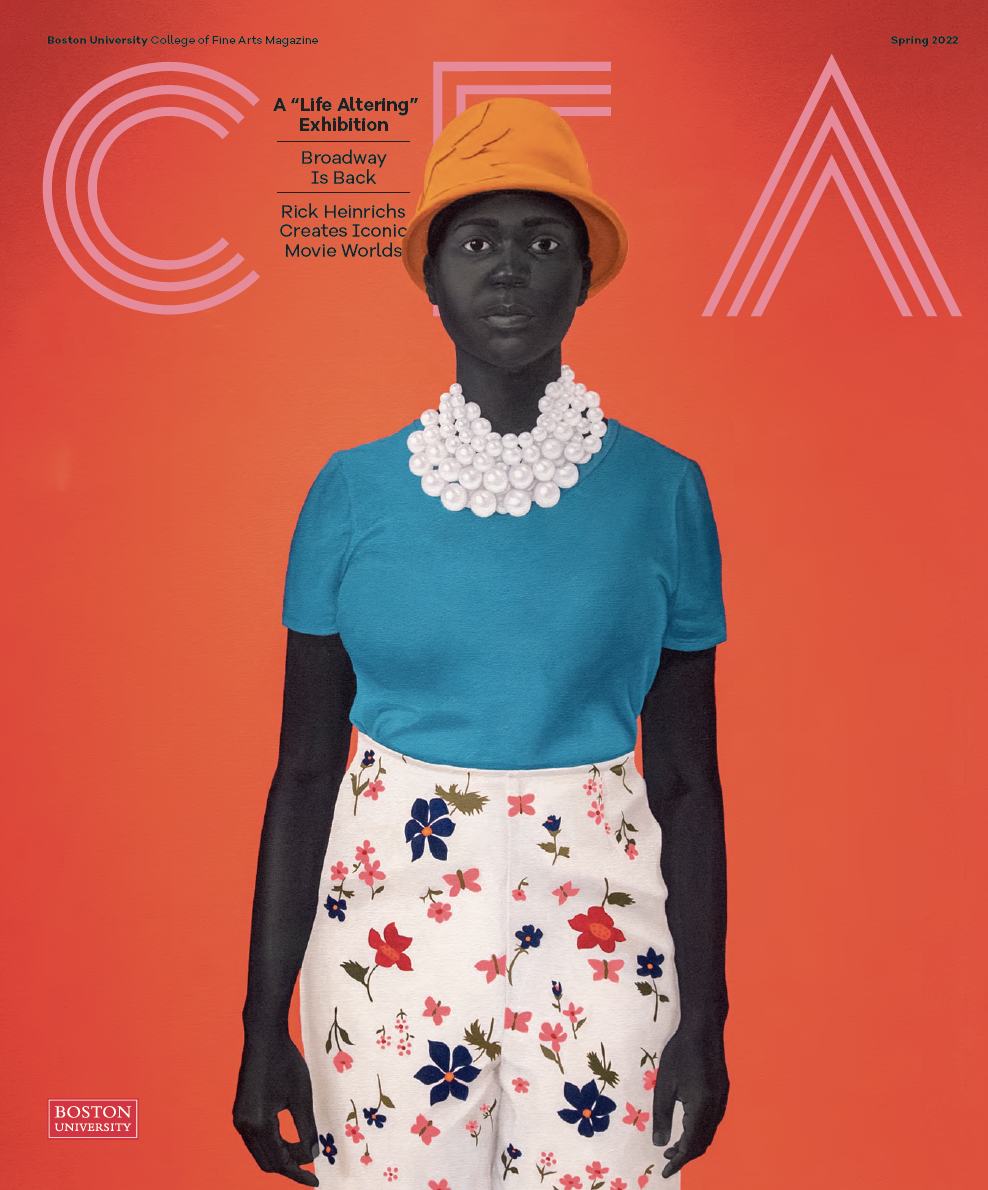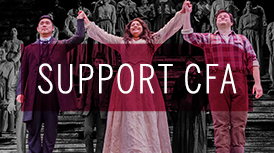The Edge of Glory
After winning the opera world’s toughest talent competition, soprano Michelle Johnson is about to go global.
By Andrew Thurston; Photo by Paul Sirochman
As you’d expect from the soprano touted by the Metropolitan Opera and the New York Times as a future superstar, Michelle Johnson (’07) is listening to Verdi nonstop. Well, maybe a little gospel, too—she did grow up singing in a church, after all. And, sure, the Texan might occasionally blast a little Gaga from her car speakers.
“I’m on this kick,” confesses the winner of the 2011 Metropolitan Opera National Council Auditions. “I don’t know pop music at all, so I’m on a kick of learning it. My soon-to-be sister-in-law is a Lady Gaga fan, so she made me a list of songs to listen to.”
Johnson doesn’t have the playlist of an average soprano. As the Met judges confirmed, she doesn’t sound like one either.
“When you hear my voice, you’re able to tell it’s me and not Suzy from down the street,” says Johnson, who joins a select, stellar list—including stage legends like Renée Fleming and BU’s own Grace Bumbry (’55)—in winning at the prestigious Met auditions. “It’s richer, has a darker tone to it.”
It’s a big voice, too; a fulsome lyric soprano. In opera terms, that means she can compete with the booming sound of an orchestra, but still flutter gracefully between the high notes. Opera Institute Director Sharon Daniels enthuses like a sommelier when she describes Johnson’s voice as “beautiful, sizable, plummy,” but one that’s “quite rare and wonderful.” Daniels expects it to take Johnson “to the far corners of the Earth.”
As a kid, Johnson sang at church and in the odd school musical, but it wasn’t until eighth grade that she began to realize, “I have something special.” The toughest challenge for many sopranos is that even though they might have the beginnings of a remarkable instrument, their voices won’t likely fully mature until they hit their thirties. “You’re not going to be financially stable,” says Johnson, “until your instrument is stable.”
For years, Johnson posted herself as a mezzo-soprano—“I could get to the top notes, but I didn’t know if I really wanted to sustain up there”—until a music teacher “flat out said, ‘I won’t teach you anymore until you make the full switch’” to soprano. The change made, Johnson came to BU’s Opera Institute at just 22 (making her one of its youngest students) where she learned the craft—the languages, the stage presence, the daily drills—of being a working opera singer.
Now 29 and comfortable in her voice, Johnson really lets loose on stage. Track down an online video of Johnson performing and you’ll see, and hear, the refined energy: Johnson’s voice brimming with power, the singer keeping everything flowing evenly. If you snuck backstage, you’d see it in her preperformance routine, too: 20 minutes of quiet meditation and then, boom, “I’m off. I have to move.” Johnson says her brothers were all athletes growing up and her preparation sounds as if it’d probably be more at home in a locker room than a greenroom.
“You have to get pumped up, you have to psych yourself out in order to get the energy you need to go onstage.”
“You have to get pumped up, you have to psych yourself out in order to get the energy you need to go onstage,” she says. “But once I’m onstage, I feel at peace. I have to be comfortable, yet calculate and always be on my toes and thinking.”
Winning at the Met means that a lot more people will hear Johnson’s rich voice. “The biggest change,” adds Johnson, “has been that my name is on a radar now—and I have the most random people asking to be my friend on Facebook.”
If a little fame comes along, Johnson is happy to take it, but she’d mostly just love to make a living, and pay her parents back. Given her success at the Met, Johnson’s parents probably won’t have to wait too long for the repayments to begin.











September 24, 2012
I love this piece and Ms. Johnson delivers it beautifully. Our firm is developing a Sponsor the Arts program that intertwines with our community outreach effort. We appreciate what BU’s fine arts program is doing and would be interested in including you in our participating colleges as we grow. The program involves white collar clients investing time and capital to fight crime indirectly through the introducing the fine arts into the fabric of underprivileged society.
Keep up the good work B.U.